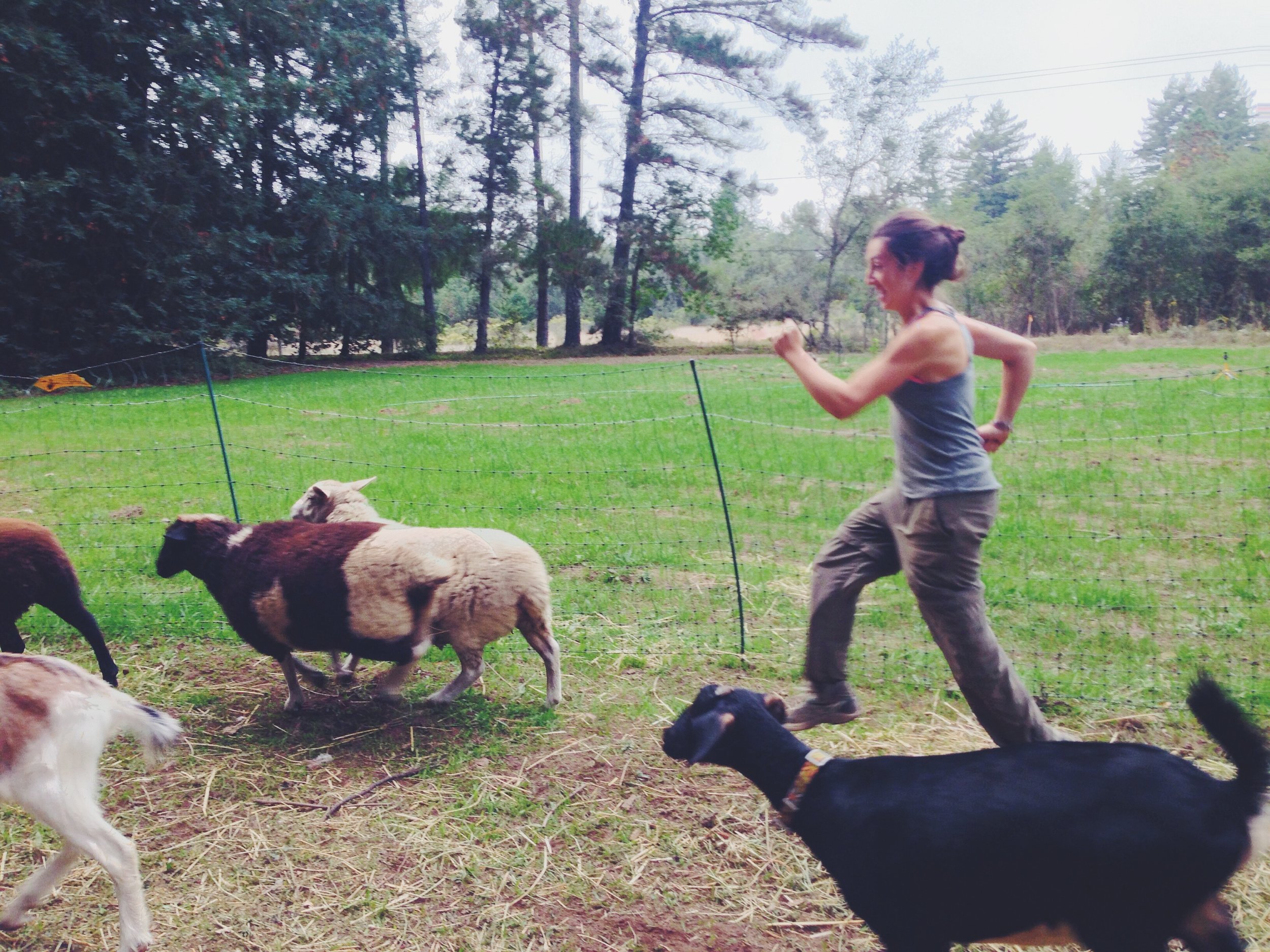Last week, I said goodbye to Bobcat Ridge Avocado Farm, but with me, I took a boatload of ideas about sustainable living and a deeper understanding of our food system. Because Bobcat Ridge is a homestead first and a business second, I felt great about my work because my work was my food. Now, I’ve moved on to FlipJack Ranch in Bonny Doon, a small farming community about thirty miles from Santa Cruz.
Though this, too, is an organic farm, Robin and David have a much different approach. At the moment, FlipJack is what they call a Boutique Hobby Farm. The goal is to create multiple revenue streams, so they’re brewing, canning, hosting, crafting, growing, and raising a fleet of animals for slaughter. And by 'they,' I mean we. It’s certainly difficult to maintain so many different aspects of farm life, but the good news is that I’m learning a lot.
Though we all help out with everything, my main responsibility is caring for the mammals. The goats, which are probably the most entertaining, are not being raised for slaughter, but for backpacking. Apparently, goats can be trained like dogs, but since they are ‘browsers,’ they eat what’s around them, so there’s no need to carry extra food.
Flip, Jack, and Cricket are the definition of high maintenance. Though they don’t wear spandex assless chaps like these weirdos I saw at the Santa Cruz Country Fair, they require a lot of care.
We take them for walks through the neighborhood, which seems to be quite entertaining for the neighbors, who have thoroughly, though not so covertly, documented our chore on multiple occasions. Cricket is the sweetest, with a calm (for a goat) and affectionate (also, for a goat) demeanor. Flip is a jerk, and is the leader of the pack. Jack is my favorite, and least favorite, depending on how teenage boy-y he’s acting at any given moment.
Sadly, he’s not long for this world. Since he’s difficult to train, Robin and David are going to slaughter him and make goat stew.
Sounds horrible, right? I mean, what if we just killed and ate anyone who didn’t do what we said? Well, this is exactly why this job is so friggin’ difficult. Unlike plants, animals are emotional. I feel emotionally connected to the fruits and veggies I eat because I am thankful for the interplay of nature and nurture that keeps me well fed. But at the end of the day, I can’t anthropomorphize a carrot like I can a goat. I just have more in common with a goat than I do a carrot. Carrots grow in the dirt and come from seeds. Goats have eyes, legs, and teeth, and I do too, so it’s tough to remove myself from becoming attached.
And as much as I learned that I could feel totally healthy on a vegetarian diet, we are omnivores and that’s not going to change any time soon. The Mangalista Pigs, Dorper Sheep, Narragansett Turkeys, Emden Geese, Crested Ducks, and even Jack the goat are better off than most for-meat animals being raised in America. We do what we can to keep them happy, and closely monitor their behavior so that we’re always accountable.
They don’t eat corn or soy and they spend all day in the sunshine. We play with them regularly, both for our pleasure and theirs.
But at the end of the day, or the season rather, they are a commodity – an asset. Spending so much time with them makes it easy to get attached, so how can you have any genuine interaction with them knowing that you, in turn, will be taking their life for your profit? Well, I haven’t figured that one out yet, and I don’t suppose I will. Since I am here to learn, rather than to profit, the best I can do is take excellent care of them and be thankful that not all farmers take the easy way out.











